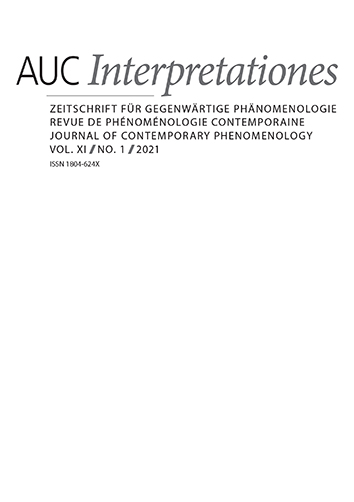AUC INTERPRETATIONES, Vol 10 No 2 (2020), 12–32
Phantasía, affectivité et inconscient
[Fantasy, affectivity, and unconscious]
Tamás Ullmann
DOI: https://doi.org/10.14712/24646504.2022.2
zveřejněno: 26. 07. 2022
Abstract
The aim of the article is to analyse the role that fantasy plays in the philosophy of consciousness. The article distinguishes first 3 conceptual models of the functioning of fantasy: (1) imagination as a weak version of perception; (2) productive imagination as a fundamental faculty; (3) fantasy as an archaic layer of consciousness. After presenting Husserl’s phenomenological theory of imagination and fantasy, the article focuses on three fundamental problems: (1) atmospheric fantasy and day dreaming; (2) fantasy and auto-affection; (3) the origin of phantasma that proves to be the most enigmatic question. The author argues for the possibility of establishing a link between Kantian schematism and Husserlian genetic phenomenology. This link is supposed to explicate the origin of phantasma. That is the way we can work out the concept of schematised affectivity.

Phantasía, affectivité et inconscient is licensed under a Creative Commons Attribution 4.0 International License.
148 x 210 mm
vychází: 2 x ročně
cena tištěného čísla: 180 Kč
ISSN: 1804-624X
E-ISSN: 2464-6504
